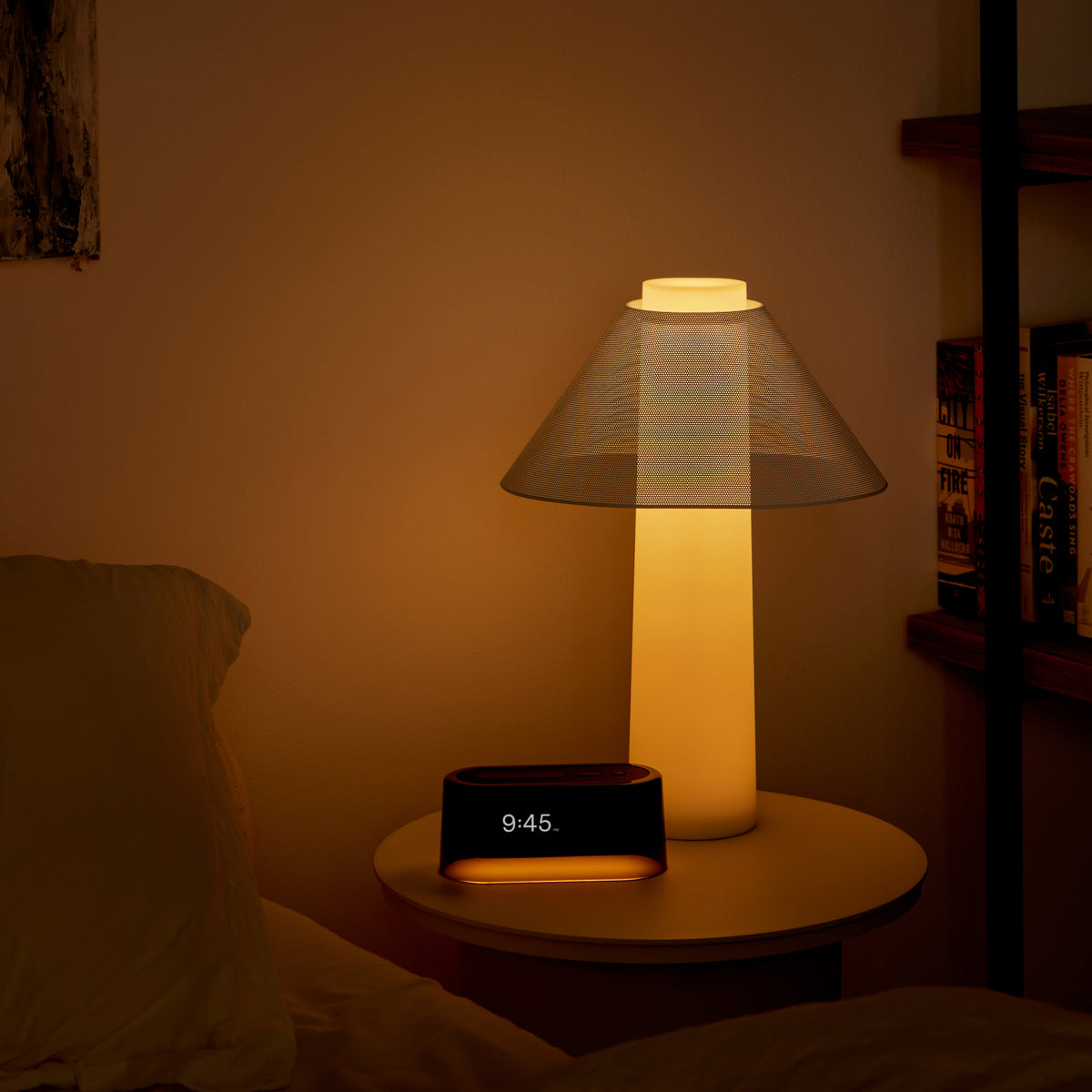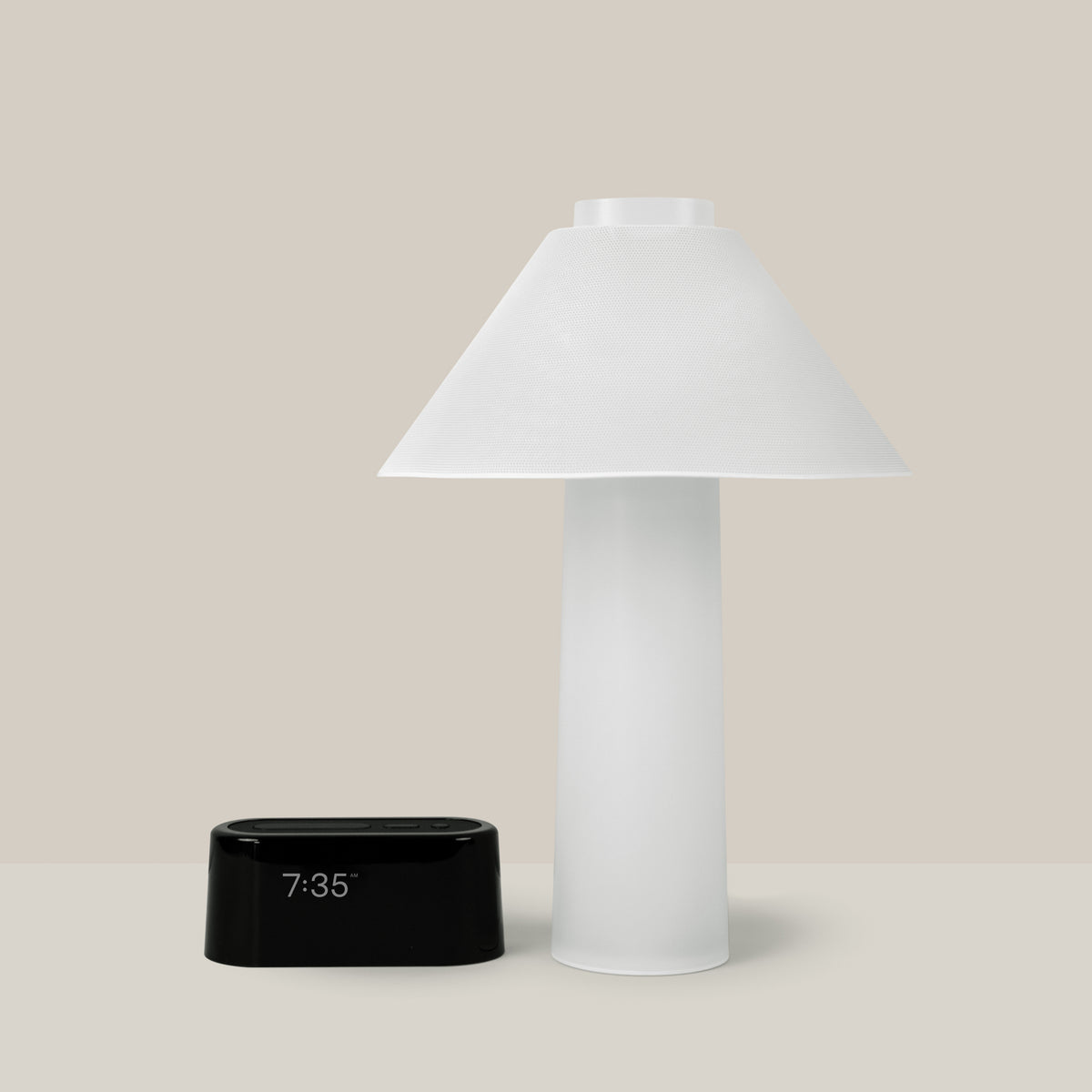If you are preparing for the arrival of a baby, then you might be panic-searching, “how to put newborn to sleep.” But before we tackle tips and tricks to help support your growing family, we want to say, congrats! What an exciting time!
We know that when we sleep better, we feel better throughout our day and while bringing a newborn into the world might pose some challenges we think these tips can help.
Tips to help your newborn sleep at night
We know every family and baby is unique in their needs, so please use this as a guide. If the methods below aren’t working, we suggest speaking with your doctor. Our hope is that this can offer some ways to incorporate a sense of calm and routine as you transition.
Create a bedtime routine
So, first thing’s first: how to get newborn to sleep. Studies show that a consistent bedtime routine can improve sleep onset and decrease problematic sleep issues. Calming practices and dim lighting can naturally encourage melatonin production at night.
The Loftie Lamp gradually dims light to support your newborn’s adjustment from daylight to nighttime. Try starting a nighttime routine with your baby 20-30 minutes before bedtime, for example:
- Start with a warm bath
- Change into pajamas and brush teeth (if they have any!)
- Change their diaper
- Read a story or sing a lullaby with dim lighting
- Set the bedroom temperature to their comfort level, ideally 68-72 degrees fahrenheit
- Turn on white noise using the Loftie Clock or use a musical mobile
- Say goodnight!
It might be challenging at first especially if your baby struggles to fall asleep, but in time they will adjust. We also suggest communicating your routine with family and caretakers when you take a night off so that your family can stay consistent.
Stick to an appropriate bedtime
Life can be unpredictable, but maintaining a consistent sleep time can make life easier in the long run. While some believe putting your baby to bed later at night allows them to sleep later in the morning, this typically is not the case. Most newborns don’t have set bedtimes in the first few months. Newborns get their sleep as needed throughout the day but this shifts around the 3-month mark so being prepared with a healthy nighttime routine is a great habit to start early for the entire family. This sleep schedule guide is another resource for finding the best bedtime as they grow.
Start weaning the night feedings
As newborns hit healthy weight milestones they begin to hold more food. This shift allows them to spend more time playing or sleeping and decrease their feeds. Once you get the okay from your doctor and know your baby isn’t hungry, try weaning off feeding to create a newborn sleep schedule. Your baby will likely still associate feeds with waking, so you can try dream feeding, a method of feeding while they’re still sleeping or introduce soothing practices throughout the day so they are less dependent on you for soothing at night.
Create a calm and relaxing ambiance
Make it a habit to reserve the bedroom for relaxation. Take note of temperature, lighting, overall aura of the bedroom. Babies can be extremely sensitive to noise but instead of trying to achieve the impossible, total silence, try adding white noise. The Loftie Clock offers white noise and variety of other constant, soothing sound settings.
Keep the lights low
At 3 months of age babies start producing a hormone called melatonin which is released in response to light. This provides a circadian signal that it’s time for them to sleep or wake. The Loftie Lamp gradually dims to mimic natural light which can support your baby’s sleep schedule.
Avoid any over-stimulation before bedtime
When we can’t sleep as adults, we may opt for bingeing a series on TV before bed, but even this can prevent us from winding down. Newborns are the same. If your newborn won’t sleep, focus on keeping the environment calm and avoid stimulating lighting or sounds to ease them into bedtime.
Make sure your baby gets enough playtime during the day
We all know how important play is for healthy development, but it can also help regulate their sleep-wake cycle. Babies can begin to associate playtime with daytime and sleep for nighttime. Another important activity is getting natural sunlight (properly protected, of course!), this also helps regulate their circadian rhythm.
Teach your baby to self-soothe
At 3-4 months, doctors suggest implementing a sleep routine. This way they can start learning their own self-soothing practice—when a baby resolves their own crying or fussing without a parent. Research suggests that babies who develop healthy self-soothing practices report less sleep disturbances by their parents.
Be consistent
Studies show that a consistent bedtime routine can improve sleep onset and decrease problematic sleep issues for children. Maintaining your baby’s sleep schedule will help instill good bedtime habits as they grow.
Be patient
If your baby was sleeping through the night and suddenly isn’t, it might be a sleep regression or a growth spurt. If they’re experiencing a growth spurt, it should only last a few days. If it persists, it might be a sleep regression which can last anywhere from 1-4 weeks. In times like this, it’s best (though difficult!) to have patience and remember it’s temporary and a sleep will resume with time.
How much sleep do newborns need?
According to research, these sleep patterns have been observed to be optimal in a baby’s first year. New born babies are on a feeding cycle with breast-feedings every 2-3 hours and bottle-fed every 3-4 hours.
That being said, all newborn babies are unique and may require more or less than outlined below. This can be used as a general guide:
- 10-12 weeks: 17 hours
- 16 weeks: 14-15 hours
- 6 months: 13-14 hours
- 12 months: shift into mostly nocturnal sleeping habits
If you’re a new to soon-to-be parent, you’re probably wondering when your baby (and you) will start to sleep through the night. In the first 6 months, a baby’s sleep-wake cycle shifts from being hunger-driven to a circadian cycle. By 2-3 months they can sleep for 5-6 hours at a time, and by 9 months, about 8-10 hours without feeding.
How to cope with disturbed nights
For the first few months, newborns wake up repeatedly throughout the night which can be very challenging to cope with as a parent. Sometimes setting up a schedule with your partner can help alleviate the stress. If you are breastfeeding, you can ask your partner to take morning duties or if you’re in a solid feeding routine you might try a bottle some nights. Asking for help from family and friends can also help you find time during the day to recharge.



















